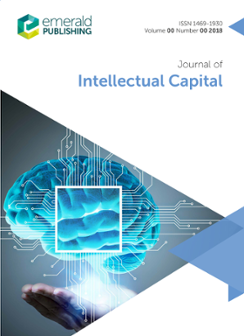如何利用以灵活性为导向的人力资源管理体系,在数字时代建立组织复原力:知识资本的中介作用
IF 6.8
2区 管理学
Q1 BUSINESS
引用次数: 0
摘要
目的 本研究的主要目的是探讨以灵活性为导向的人力资源管理(FHRM)系统对知识资本和组织复原力的影响。本研究还探讨了数字化能力对知识资本和组织复原力之间关系的调节作用。设计/方法/途径在 COVID-19 大流行期间,本研究从中国长江三角洲地区的 219 家中国企业中收集了数据。研究结果实证结果表明,FHRM 系统与智力资本和组织复原力呈正相关。智力资本在财务人力管理系统与组织复原力之间起到了中介作用。原创性/价值从复原力理论、基于资源的观点和动态能力理论的角度出发,本研究首次确定了财务人力资源管理系统通过智力资本影响组织复原力的过程机制。数字能力被引入作为理解智力资本对组织复原力影响的情境因素,这为进一步研究提供了新的见解。本文章由计算机程序翻译,如有差异,请以英文原文为准。
How to leverage flexibility-oriented HRM systems to build organizational resilience in the digital era: the mediating role of intellectual capital
PurposeThe main purpose of this study is to investigate the effects of flexibility-oriented human resource management (FHRM) systems on intellectual capital and organizational resilience. This study also examines the moderating effect of digital capability on the relationship between intellectual capital and organizational resilience.Design/methodology/approachData were collected from 219 Chinese businesses in the Yangtze River Delta region of China during the COVID-19 pandemic. Confirmatory factor analysis was used to verify the validity and reliability of the measurements, and hypotheses were tested using hierarchical regression.FindingsThe empirical results show that FHRM systems are positively correlated with intellectual capital and organizational resilience. Intellectual capital mediates the link between FHRM systems and organizational resilience. Moreover, digital capability serves as a positive moderator between intellectual capital and organizational resilience.Originality/valueFrom the perspectives of resilience theory, the resource-based view and the theory of dynamic capabilities, this study is among the first to identify the process mechanism by which FHRM systems affect organizational resilience through intellectual capital. Digital capability is introduced as a situational factor for understanding the effect of intellectual capital on organizational resilience, which provides new insights for further research.
求助全文
通过发布文献求助,成功后即可免费获取论文全文。
去求助
来源期刊

Journal of Intellectual Capital
Multiple-
CiteScore
14.50
自引率
13.30%
发文量
27
期刊介绍:
The Journal of Intellectual Capital is a peer-reviewed international publication dedicated to the exchange of the latest research and best practice information on all aspects of creating, identifying, managing and measuring intellectual capital in organisations. The journal publishes original research and case studies by academic, business and public sector contributors on intellectual capital strategies, approaches, frameworks, tools, techniques and technologies in order to increase the understanding of intellectual capital within the context of the modern knowledge economy. The focus of this journal is on the identification of innovative intellectual capital strategies and the application of theoretical concepts to real-world situations.
 求助内容:
求助内容: 应助结果提醒方式:
应助结果提醒方式:


